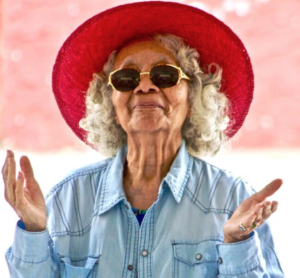Study: Age stereotypes can affect seniors’ health
Study: Age stereotypes can affect seniors’ health
 A new study published in The Journal of the American Medical Association suggests older persons who have positive stereotypes about aging — e.g., old age brings satisfaction, wisdom, etc. — are 44 percent more likely to fully recover from an injury or disability. However, those who have negative age stereotypes — feelings that becoming old is tied to being decrepit, helpless, etc. — are less likely to consider preventative medical treatment and more likely to suffer memory loss, have poor physical health and ultimately die earlier than those who have a positive outlook, the research shows.
A new study published in The Journal of the American Medical Association suggests older persons who have positive stereotypes about aging — e.g., old age brings satisfaction, wisdom, etc. — are 44 percent more likely to fully recover from an injury or disability. However, those who have negative age stereotypes — feelings that becoming old is tied to being decrepit, helpless, etc. — are less likely to consider preventative medical treatment and more likely to suffer memory loss, have poor physical health and ultimately die earlier than those who have a positive outlook, the research shows.
Becca Levy, an associate professor of epidemiology and psychology at Yale University, is the researcher who has advanced this body of knowledge further than anyone, reported The New York Times.
In one set of research, Levy exposed 660 participants to external stimuli, flashing positive or negative words that the participants could only process subconsciously. Those exposed to negative words shared common traits such as poor handwriting and higher levels of cardiovascular stress. Those prompted with positive words did much better, and on average lived 7.5 years longer, according to the Times. Using this data, Levy went on to establish that eating a balanced diet, regular exercise, limited alcohol consumption and other healthy activities were associated with those with positive age stereotypes.
The Times asked the National Institute of Aging’s Dr. Marie Bernard about the research, which “confirmed her clinical observations in more than 30 years of medical practice.” Even so, Bernard pointed out that the study is small, and it should be replicated in order to be more conclusive.
What we really need to understand is the mechanism, Bernard told the newspaper. Is it something that is malleable and, if so, could we help people live longer, healthier lives?
The article notes that those answers will have to wait. Still, it touches on the subject of ageism and the idea that the way people treat one another does indeed influence behavior as well as perception of self. Perhaps by being more thoughtful in the way we act and the words we choose, we can be a positive influence in the lives of our aging loved ones. And, if there’s even a shred of truth to Bevy’s research, we can help those we care about live longer, more fulfilling lives.
Physicians Choice Private Duty currently serving Omaha, Eastern Nebraska and Western Iowa ” provides seniors and their families a complete understanding of the available care options and helps families maneuver through the challenges of the system. All Physicians Choice Private Duty services are directed by registered nurses or social workers with no long-term contracts. Contact us today for help with your senior care needs.
“Physicians Choice Private Duty solves the challenges families face in caring for aging parents, with a focus on strategies that keep them in their homes. To learn more about our solutions, visit us today..”


